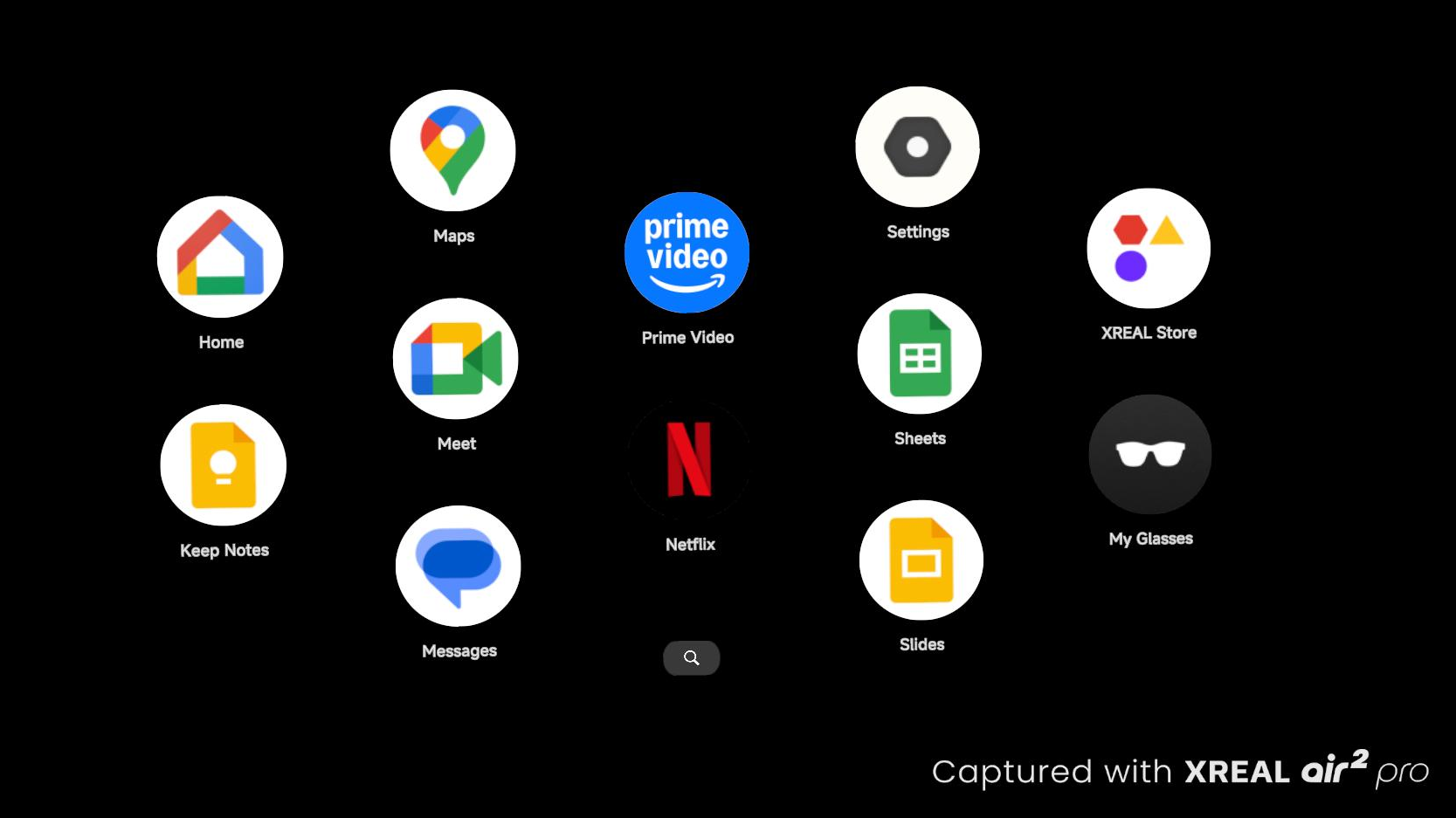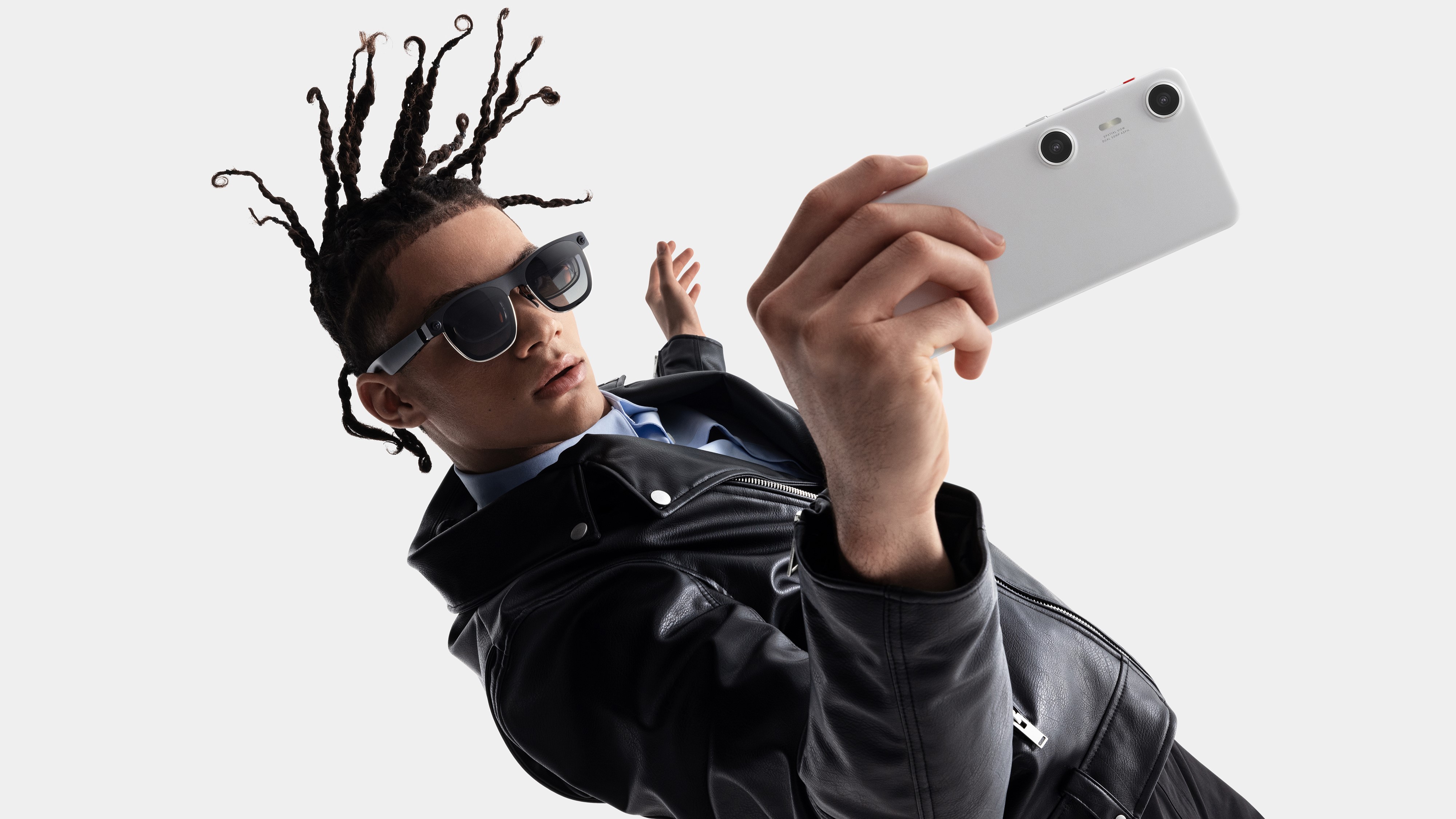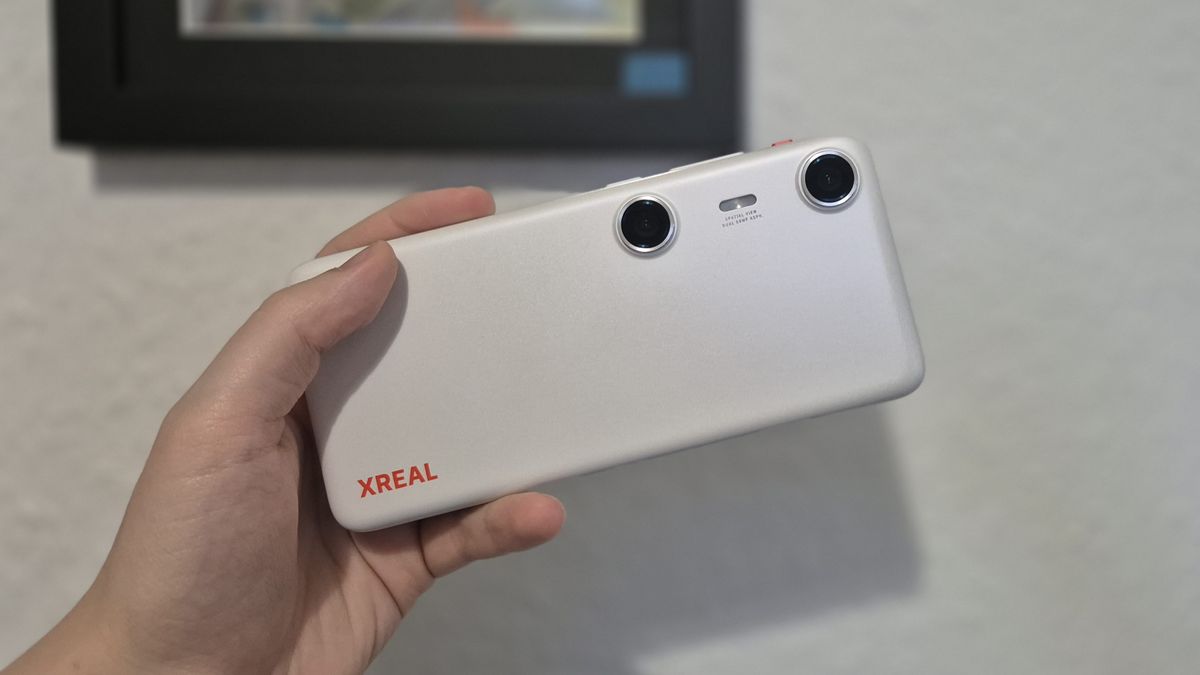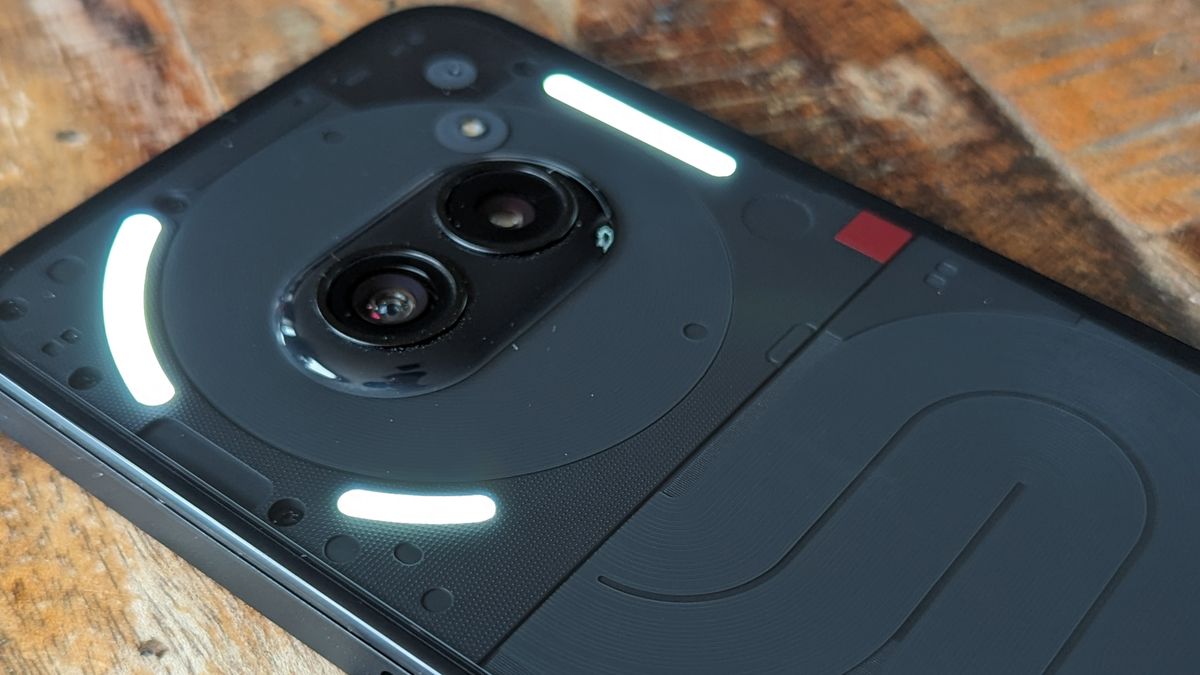The Xreal Beam Pro delivers much of what spatial computing has been missing on the AR glasses side of things.
It finally turns your Xreal Air or Xreal Air 2 specs into a complete XR package rather than just a wearable display. The handheld, smartphone-like device adds much-needed features like easy spatial photo capture without an iPhone 15 Pro and helpful design details like two USB-C ports. Plus, it’s super affordable at only $199 / £189 for its base model from Xreal’s official store.
Unfortunately, it falls short of solving every issue facing AR smart glasses – simultaneously throwing in a few annoyances that are exclusive to this currently imperfect product.
There’s a lot to love about the Xreal Beam Pro – for people who use their Xreal glasses frequently it’s not far from being a must-buy accessory – but it falls short of transforming AR smart glasses into the mainstream spatial computing gadget like I hoped it might.
Almost everything I wanted
Starting with what makes the Beam Pro fantastic, the spatial image-enabled cameras, which sit on the back of the device, are an XR convenience I didn’t know I needed. This dual-camera rig can shoot 1080p 3D video at 60FPS or snap a 50MP 3D photo, and the results look fantastic.
As our own Lance Ulanoff has commented when viewing spatial images with the Vision Pro they’re a cut above flat snaps, and I wholeheartedly agree. So much so that I now carry the Beam Pro with me even without my Xreal glasses so I can capture memories in their full 3D glory.
The other huge convenience is the second USB-C port. Wired AR Glasses can rinse through your connected device’s battery – it’s a problem I’ve had when using every brand’s wired specs with a smartphone – so the ability to charge your Beam Pro while using it is a benefit that can’t go understated.
Beyond this, the Beam Pro’s strengths are simplicity and price. Thanks to hardware oddities XR glasses aren’t compatible with every product you’d think they would be, and buying adapters (if there are any) can be confusing even for the tech-savvy. The Beam Pro cuts through this chaos as the one add-on you need to complete your XR setup – with connecting your AR glasses to other tech now relegated to being an added bonus rather than a necessity. Plus at $199 / £189, the Xreal Beam Pro is a heck of a lot cheaper than the phones it’s imitating, with a lot to offer.
That said it does suffer technically at times.
Odd sacrifices were made
The base model (which I tested) comes with 128GB of storage which is fine, though the 6GB of RAM is disappointing and can lead to some sluggishness; opting for the 256GB upgraded model which comes with 8GB of RAM for just $249 / £239 looks to me like a more than worthwhile upgrade.
The display seems to struggle too, perhaps from a lack of processing power. When using the following mode – where the screen moves so that it’s always in front of you – the image flickers every so often and noticeably lags behind my head movements. Meanwhile, the body-anchor mode – which should keep the screen in one stationary place, like using a virtual TV – doesn’t always work as intended as the screen will steadily drift from its set position. Saying that, things did improve in this department thanks to software updates in the past day or two suggesting it could also be that the Nebula OS needs some refinements.
At its low price sacrifices should be expected, but when you consider a complete Xreal Air 2 glasses and Beam Pro package would set you back at least $598 / £588 (more than a Meta Quest 3), I’d like something with more oomph – at least 4K visuals, and 8GB of RAM as a starting point.

The software offers its own annoyances. While the VisionOS-like app layout is aesthetically fine, the app management is frustrating – early smartphone days levels of frustrating.
The apps in this virtual layout don’t appear to have any particular order, and trying to rearrange the chaos by dragging icons around is finicky to say the least. The option to easily disable apps for this XR menu – so you aren’t just seeing everything installed on your Beam Pro – would be a start to make it less unwieldy. The next steps should then be easier icon rearrangement tools (even an on Beam Pro option so you can use touch controls to drag apps around) and the ability to make grouped folders of apps – but it’s yet to be seen how extensive and frequent Xreal’s OS updates will be.
To round off my gripes, the Xreal Beam Pro is too big. If this was a phone the additional screen real estate would be a blessing, not a curse, but the Beam Pro (despite its looks) is not a phone. Its goal is to be a portable accessory and controller for your Xreal glasses, and thanks to its 6.5-inch screen it struggles a tad in this department – it noticeably juts out of my jeans’ back pocket, and when using the controller I have to constantly readjust my grip (or use two hands) to reach every icon.
The Xreal Beam Pro is not a standalone product, and so it doesn’t need features like a large LCD 2K display when it could get away with something smaller with lower fidelity. I’d go as far as to say this thing doesn’t even need speakers – I’d happily lose them for more RAM or simply a lower price.
Is the Xreal Beam Pro right for you?

If you’re looking for a portable smart TV for your AR glasses, and spatial photo capture device at an affordable price, then the Xreal Beam Pro won’t disappoint. In this regard, the Xreal beam Pro is close to perfect.
But as a spatial computer it’s not powerful enough nor refined enough (at least not yet) to be a standout winner. I’m excited to see what improvements Xreal makes to the Beam Pro’s software in the coming months, and to see what hardware comes next





